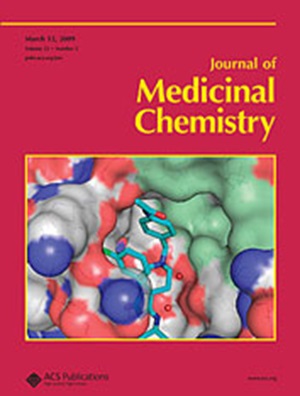利用集体智慧的药用化学直觉
IF 6.8
1区 医学
Q1 CHEMISTRY, MEDICINAL
引用次数: 0
摘要
本文章由计算机程序翻译,如有差异,请以英文原文为准。

Harnessing Medicinal Chemical Intuition from Collective Intelligence
Over the past decade, collective intelligence, i.e., the intelligence that emerges from collective efforts, has transformed complex problem-solving and decision-making. In drug discovery, decision-making often relies on medicinal chemistry intuition. The present study explores the application of collective intelligence in drug discovery, focusing on lead optimization. Ninety-two Sanofi researchers with diverse expertise participated anonymously in an exercise centered on ADMET-related questions. Their feedback was used to build a collective intelligence agent, which was compared to an artificial intelligence model. The study led to three major conclusions: first, collective intelligence improves decision-making in optimizing ADMET endpoints, compared to individual decisions. Second, collective intelligence outperforms artificial intelligence for all other endpoints but hERG inhibition. Finally, we observe complementarity between collective human and artificial intelligence. Overall, this research highlights the potential of collective intelligence in drug discovery and the importance of a synergistic approach combining human and artificial intelligence in project decision making.
求助全文
通过发布文献求助,成功后即可免费获取论文全文。
去求助
来源期刊

Journal of Medicinal Chemistry
医学-医药化学
CiteScore
4.00
自引率
11.00%
发文量
804
审稿时长
1.9 months
期刊介绍:
The Journal of Medicinal Chemistry is a prestigious biweekly peer-reviewed publication that focuses on the multifaceted field of medicinal chemistry. Since its inception in 1959 as the Journal of Medicinal and Pharmaceutical Chemistry, it has evolved to become a cornerstone in the dissemination of research findings related to the design, synthesis, and development of therapeutic agents.
The Journal of Medicinal Chemistry is recognized for its significant impact in the scientific community, as evidenced by its 2022 impact factor of 7.3. This metric reflects the journal's influence and the importance of its content in shaping the future of drug discovery and development. The journal serves as a vital resource for chemists, pharmacologists, and other researchers interested in the molecular mechanisms of drug action and the optimization of therapeutic compounds.
 求助内容:
求助内容: 应助结果提醒方式:
应助结果提醒方式:


